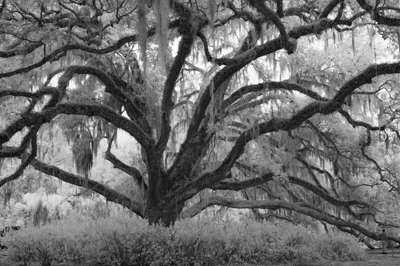 I hadn’t known the girl very well, and rarely gave her much thought before she disappeared the summer between ninth and tenth grade, when my family lived in Buckhannon, West Virginia. We both had last names that started with the letter “B,” so we frequently had to sit next to each other in classes where our teachers couldn’t be bothered to come up with a creative way to assign seats. I didn’t particularly like her, but I didn’t dislike her either—she was just kind of there.
I hadn’t known the girl very well, and rarely gave her much thought before she disappeared the summer between ninth and tenth grade, when my family lived in Buckhannon, West Virginia. We both had last names that started with the letter “B,” so we frequently had to sit next to each other in classes where our teachers couldn’t be bothered to come up with a creative way to assign seats. I didn’t particularly like her, but I didn’t dislike her either—she was just kind of there.
Until she wasn’t. One day, my dad came home at lunch with the newspaper—fresh off the press—in his hand. “Do you know this girl?” She looked more interesting in black and white. “She’s missing,” he said. “Her parents think she was kidnapped.” I guess everyone’s parents were frightened for a couple of days, although even the early articles included quotes from the police chief saying that—her parents’ certainty aside—there was no evidence to suggest she was taken against her will.
People seemed to think that she would be found somewhere in town, which meant we were all surprised two weeks later to learn that she and her companion—a local boy who hadn’t been reported missing—had been charged with indecent exposure on a beach in Florida. Of course he was older than she was—old enough to drive, not old enough for it to be a felony.
Dad was disgusted by both the immorality and stupidity of it all. “They would have gotten away,” he said, “if they’d kept their clothes on.” Her mother, of course, was mortified when she came to the newspaper office to try to convince my father not to publish the truth—a wasted effort, as they’d been covering the story for weeks and had already devoted several column inches to the family’s kidnapping theory. My father’s insistence that he had an obligation fell on deaf ears, though. “It’s not her fault,” the mother said. “He seduced her; he made it sound so romantic, like… Romeo and Julio.” The second name she pronounced “jew-lee-oh,” which made both my mother and me laugh when my dad told us.
But even if I shared my parents’ opinion that the mother was dumb, I couldn’t bring myself to believe that the girl herself was a victim of her own stupidity. Oh, I agreed with my father out loud, but in my heart of hearts I knew that this quiet, bored girl I’d never really thought about before was now the bravest and coolest person I’d ever met. Because I knew what she knew, and what our parents had forgotten: when you’re fifteen, the world tries to crush you. Teachers, parents, cops—the only escape from their tedious gaze came in the form of heavy metal videos and the occasional party with friends who felt similarly suffocated. Life sucked, it was all bullshit, and any relief to be found was only temporary. Then, it was back to the world of chores and standardized tests.
But not for her. Not for a couple of weeks, anyway. She did what the rest of us were afraid to do. Made it all the way from our shitty coal mining town to a place of tropical opulence, with no one assigning her a book to read or forcing her to take the garbage out the entire time. It was just freedom, with the boy she loved by her side (and on top of her and underneath her and behind her, the fearful virgin that I was imagined). And yeah, she got caught. But didn’t she have to? True, she and her guy didn’t hurt people, the way Bonnie and Clyde and Mickey and Mallory and other famously unconventional couples did, but it seems to me that no one who declares “me and you against the world” honestly believes he or she is going to win—that’s why so few do it. Her story could have ended with prostitution, or a violent break-up, or just the call to home from a truck stop—“Mom, come get me.” But instead, I liked to think, Julio took charge of her situation—walked into the surf, removed her bikini bottoms, and wrapped her legs around the boy who did not kidnap her, saying “fuck me” to him and “fuck you” to the world of the oppressive and the oppressed as it looked on, terrified and scandalized, from the safety of the beach.
—
William Bradley works at Chowan University in Murfreesboro, NC, where he teaches classes in creative writing, American Literature, and composition. His work has appeared in magazines such as The Bellevue Literary Review, Passages North, The Chronicle of Higher Education, The Normal School, and The Missouri Review. He has been nominated for a Pushcart Prize twice, and his essay “The Bald and the Beautiful” was named a “Notable Essay of 2005” by Robert Atwan in The Best American Essays 2006 anthology.
Photo by Pamela Z. Daum

1 comment
Attila Zonn says:
Sep 21, 2017
Great piece. Well done. All the best